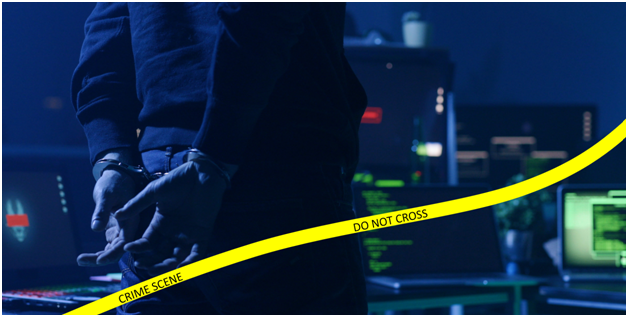First Responder Officer can be a PCR Van officer or the Emergency Officer of the Jurisdictional Police Station. He is often the first to arrive on the scene of crime and needs to have an awareness of how technology affects crime, what is digital evidence and how it should be handled.
First Responder Officer can be a PCR Van officer or the Emergency Officer of the Jurisdictional Police Station. He is often the first to arrive on the scene of crime and needs to have an awareness of how technology affects crime, what is digital evidence and how it should be handled.
Objective
Responders would be the first personnel to report to the scene of crime. These are the first officials to assess the complaint, the crime scene, nature of the crime, its modus operandi and the technology involved. Hence it is imperative that these officers are made aware about various cyber-crimes and their modus operandi along with handling the crime scene, and collection of both physical and digital evidence.
The objectives of this course is for Responders to gain an intermediate level knowledge of the following topics:-
- Introduction to Advanced Technologies like Cloud, SCADA, IOT and Drones.
- Introduction to IT Act and Associated Legislations including Admissibility of Electronic Evidence.
- Understanding Digital Crimes including Cyber Investigation Risks.
- Understand Incident Response Procedures including Search, Seizure, Packing, Forwarding and Documentation.
- Digital Evidence Acquisition Procedures and relevant Dos / Don’ts.
- Understand various SOPs for Handling Digital Evidence.
The prerequisite for this course is Responder Track – Basic Level Course.

Objective
An incident responder is often the first police personnel to arrive at the scene of crime. An incident responder, therefore, must be aware of how technology affects crime, what is digital evidence and how it should be handled.
The basic level course for Incident Responder's track shall help the Law Enforcement Agencies gain an understanding of following subjects:
- Understand different types of cyber-crimes and its evolution over the years.
- Understand various technologies like Computers, Mobiles and Computer Network along with their hardware and software components.
- Understanding what digital evidence is and what can be found by analyzing digital Evidence.
- Incident Response Procedures- identifying, gathering, preserving digital evidence with proper chain of custody.
- Digital Crime Scene Management including search and seizure of evidence.
- Implications of data/evidence tampering and method to prevent and avoid data tampering and preserve authenticity of evidence.
- Standard Operating Procedure and major precautions which are required to taken before acquisition of digital evidence.
- Knowledge of current legislation and policies related to crimes using technology including the legal authority to obtain telecommunications information such as subscriber data.
The technology fundamentals and crime scene management is explained through case scenarios and demonstration/simulation of tools along with Standard Operating Procedures (SOP)

Objective
Cybercrime is constantly evolving. It is important for cybercrime incident responders to be aware of the latest development in technology being used by cyber criminals. This course is for cyber crime responders to get specific insight into new technology and trends and specific procedures and SOPs.
Objective of this course is for Incident Responders to gain knowledge ofthe followingtopics:-
- Handling new technology devices from the scene of crime like drones, smart vehicles, satellite and wireless communication devices.
- Understanding new trends in cyber-crime including social media frauds, banking frauds, supply chain frauds and ticketing system frauds.
- Handling cross border cybercrime cases including MLAT and LR.
- Understanding risks associated with technology and handing sensitive evidence in cybercrime cases.
The prerequisite for this course is Incident Responder Track – Intermediate Level Course.
